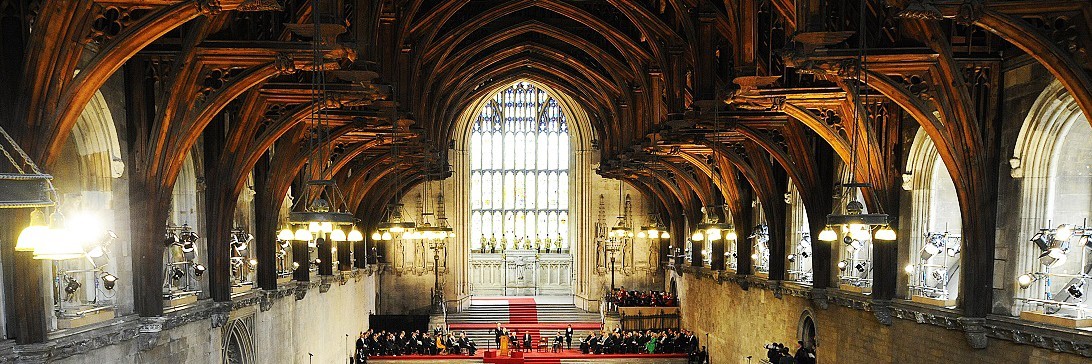The All-Party Parliamentary Human Rights Group (PHRG) met with Olga Silva, Colombian human rights lawyer and Director of the human rights organisation Humanidad Vigente, on 27 June, to discuss continuing human rights challenges in Colombia.
Olga Silva (centre) with Baroness Hooper and Nicole Piché (PHRG Co-ordinator) to the right,
and Catherine West MP and Adam Lunn (PBI UK) to the left
The main points raised were as follows:
- It is hoped that the peace agreement between the FARC paramilitary group and the Colombian Government will bring an end to violence; there has definitely been a reduction in deaths in connection with armed conflict since the agreement was concluded. Talks between the ELN paramilitary group and the Colombian Government are currently being held in Quito, and this complementary peace agreement will also be important for civil society.
- However these peace agreements do not necessarily mean that peace will result; they only create the conditions that allow for peace. Implementing the peace agreement between the FARC and the Government, as well as ensuring the population are aware of their rights and take ownership of the agreement, is crucial. The international community needs to be engaged, particularly to monitor implementation.
- Official figures show that in a fifteen month period, between January 2016 and March 2017, 156 human rights defenders (HRDs) and social leaders in Colombia have been assassinated. Those who are particularly vulnerable are working on peace-building and human rights. There is also increasing criminalisation and imprisonment of HRDs.
- Increasing criminalisation of social movements and protests is increasing too, for example in the south west of Colombia.
- In regional capitals and rural areas where the FARC has demobilised, there has been a strengthening of other paramilitary groups, which have filled the vacuum. These groups receive funding from narco-traffickers and use terror to control the population.
- There are political and economic factions within Colombian society which oppose the peace agreement, in particular those parts that relate to land restitution and the re-integration of FARC members; the failure to deal with these issues have previously fuelled the conflict.
- Multi-national corporations and extractive industries, including those from the EU and the UK, often operate in a way which falls short of international standards, depriving communities of land rights and cultural rights, as well as undermining the right to life. Many companies have also been questioned about their links to paramilitary groups, which can provide private security services to them and instigate the displacement of the local population from the land.
- After the FARC have been demobilised, the UN Office of the High Commissioner for Human Rights and countries such as the UK should be involved in overseeing the security of communities and the reintegration of ex-FARC combatants.
- There is distrust between civil society and the population on the one hand and the army on the other. There are fears that some in the police and the army still have connections to paramilitary groups or narco-traffickers. Colombia needs to create an army for peace not for war if it is to build trust among the local population.
The PHRG will continue to monitor the situation in Colombia closely, particularly the on-going implementation of the peace agreement and continuing threats facing HRDs, and to raise its concerns with the relevant interlocutors.

